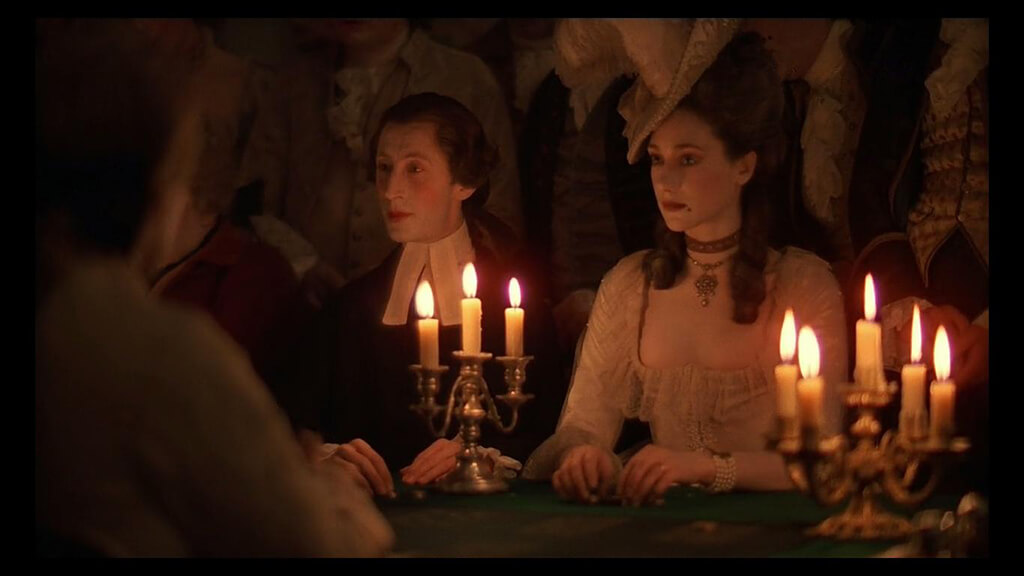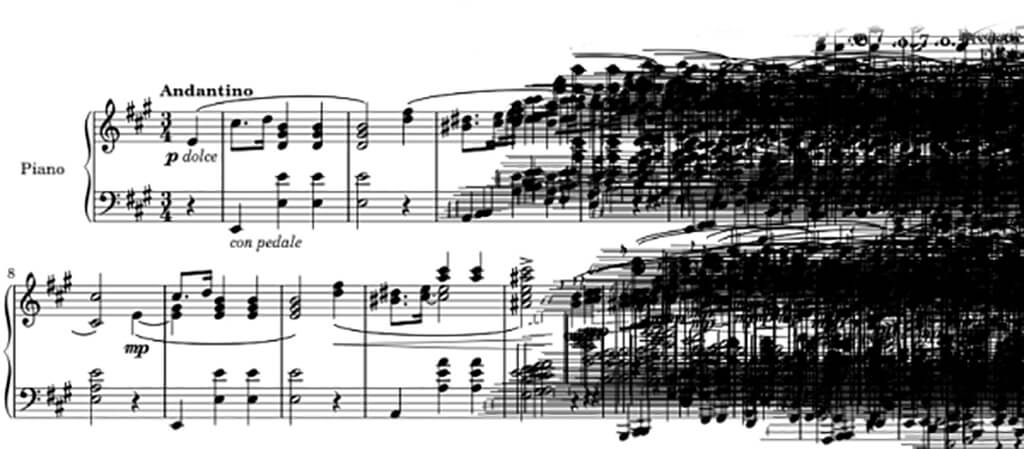
Montreal-based composer Nicole Lizée fuses the old with the new, the antiquated with the innovative, the defective with the pristine. Her work pushes technological objects to the point of rupture, and displaces these sounds into different and daring contexts. Lizée’s work is characterized by the striking sonic beauty that is revealed in such processes.
“My aesthetic is built around the idea of malfunction. Embracing malfunction, embracing vintage machines and vintage techniques, old-school film techniques […] but especially malfunctions. Machines and media behaving badly. And harnessing that glitch […] not only using that machine that is glitching, but simulating that using acoustic or live musicians.”
This novel musical aesthetic is provocative and evidently attractive; Lizée’s work has been performed by the likes of the BBC Proms, the National Arts Centre Orchestra, the San Francisco Symphony, and in dozens of notable venues throughout North America and Europe.
“It’s a great time to be in the classical world […] we’re moving forward; it’s an active time. All I can say is that I’m really enjoying presenting things that are my aesthetic, that I’ve been doing for a long time. Orchestras and ensembles are really embracing it, really wanting to make it happen.”
Lizée is a featured composer in the Toronto Symphony Orchestra’s 2017 New Creations Festival. Two of her new compositions will be featured in the third and final concert of the festival on March 11.
Her first piece on Saturday’s program, Zeiss After Dark, is Lizée’s sonic homage to cinematography. Drawing on her longstanding fascination with film in the 1960s and 1970s, Lizée was interested in musically capturing the difficulty inherent in film that relies solely on candles to light a particular scene, such as in Stanley Kubrick’s 1975 Barry Lyndon. To combat the challenges inherent in this kind of practice, the film employed a special kind of lens — a Zeiss lens—to facilitate this low light situation and maintain the intimate effect. Lizée sought to evoke this effect musically:
“Reading about this and reading about what the cinematographer had to go though was really fascinating […] So essentially I wanted lens music, I wanted cinematography music. That’s what I was creating: something to acoustically simulate […] the flicker, the low-light, the heat, the shadows; what the Zeiss lens would sound like.”

Black MIDI, Lizée’s other piece on the program, is a TSO commission that will have its world premiere on Saturday evening. The piece is inspired by an underground micro-genre known as Black MIDI. This music utilizes music notation software or MIDI sequencers to sound an extraordinary amount of notes simultaneously.
“The sound is black. It’s blackened from the inputting of so many notes. And the sound, of course, is just massive. It’s this ridiculous, crazy sound that’s easy to become addicted to.”

Lizée’s piece transports this digital music practice to the Roy Thomson stage; Black MIDI is specifically written as a concerto to feature the world-renowned Kronos String Quartet alongside the TSO. Rooted in her fascination with sonic malfunction, Lizée’s Black MIDI aims to “break” the acoustic orchestral instruments using notation software. “The orchestra and the string quartet will ask the question: what is [Black MIDI]? They will tap into the mystery of what it could be.”
Lizée’s music marks a clear departure from “traditional” art music practice. When composers concoct unconventional musical experiments, results may vary. This can push music into a more approachable, wide-reaching musical middle ground, or, in some cases, the music can become abstracted to the point of general disinterest. When I asked Lizée how people generally respond to her musical experiments, she explained that “the reactions are very vast, but they always have something to say, which is exciting.”
“There has been resistance,” Lizée recalled. She explained that during her graduate studies at McGill University her proposed thesis piece — a turntable concerto — was an issue of contention among the composition faculty. When I asked Lizée if she still feels any sense of resistance towards her work as a more established composer, she said this is a non-issue for her:
“I’m going to do what I want to do […] I’ve written for a lot of amazing ensembles that know what I do and want me to write for them […] I’m going to create the piece that I want to create […] and then the invitations and the commissions — knowing what I’ve done — will stem from that.”
While Lizée was careful to note that she does not think about the audience when she’s composing, she also recognized that her audiences are quite varied, and that her music “has different connotations for different people.”
Lizée went on to detail how some audiences identify with her music because of her incorporation and revitalization of old machines. She described instances where audience members approached her saying they were drawn to her style because they could hear the past in the music; the sound of the 60s, evocations of retro videogames, or references to filmic sound of Hitchcock or Kubrick.
It’s as though her music invites certain audiences to relish in a sonic nostalgia. But the appeal of Lizée’s music reaches beyond this; it is certainly not exclusive to one particular audience demographic or performance context. Lizée’s music can comfortably sound in concert halls and music festivals. Her music is played at open-minded pop, indie rock, and experimental music festivals, as well as film festivals. For Lizée, this seems only natural.
Lizée’s Black MIDI premieres tonight, at the TSO’s New Creations Festival, March 11 at 8 p.m. Details here.



